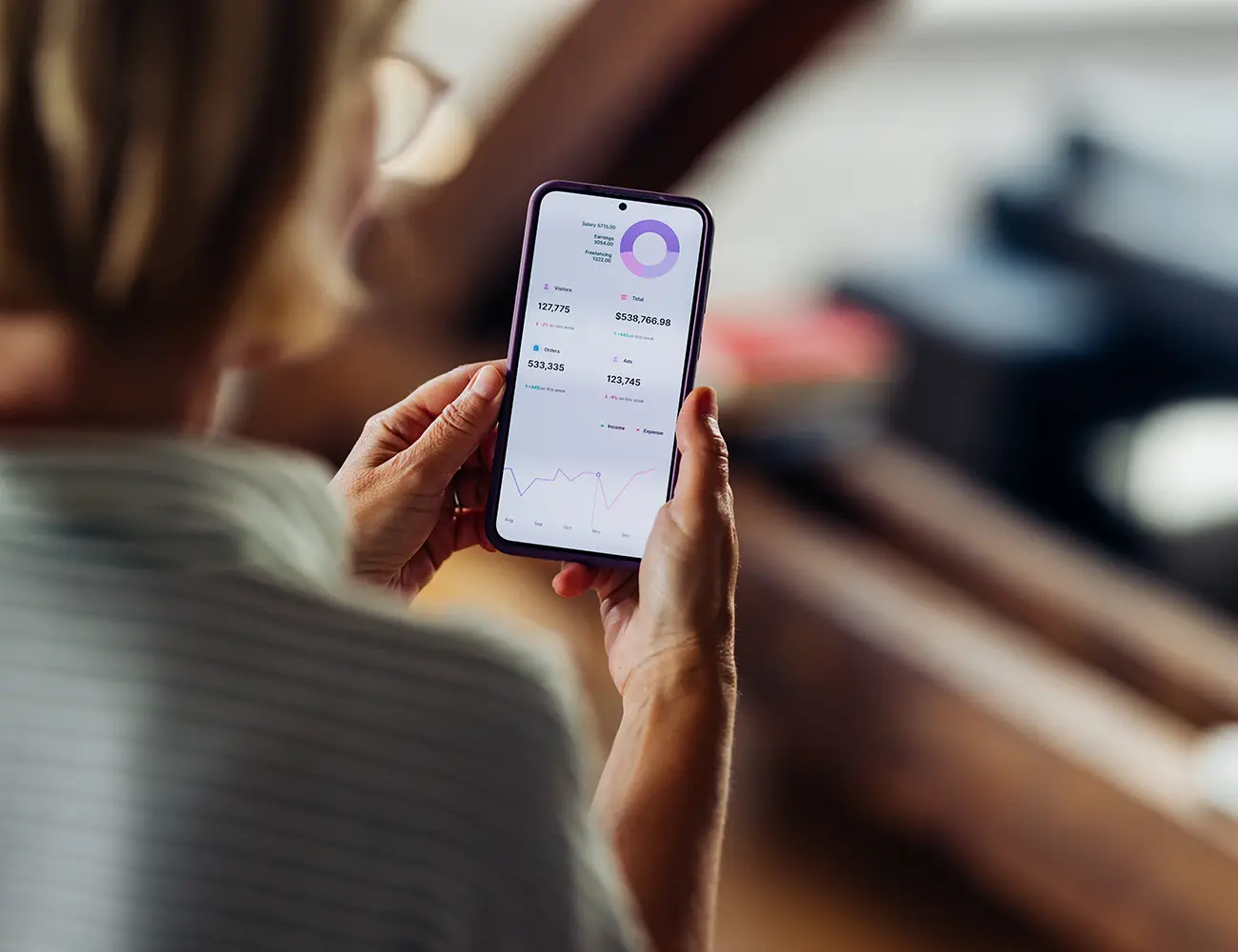Helpful Hints
Information and tips on financial topics, fraud, and security
Personal Information Protection
Please remember that Ergo Bank and Fiserv/Accel (our debit card provider) will NEVER ask for a full debit card number, PIN, account number or your social security number if we are calling you directly. If you receive a fraudulent telephone call, please call us immediately.
Ergo Bank: 920-398-2336
Fiserv/Accel: 1-800-992-3808 activation

GoMobile with Ergo
Ergo Bank Mobile App Announcement
GoMobile Instructions
How to Download an App from the App store.
- Click on the App Store icon on your phone which will bring into the App store.
- Click on the search option within the App store.
- In the search field type in your search criteria ‘Ergo Bank Mobile’ and hit search. (The App store will search for the Ergo Bank App.)
- Once the App store finds the Ergo Bank App, you will receive a logo with an option to download the App for free.
- Click on the download option.
- Once it has completed the download process it will have an open button. You can either click on the open button from within the App store or close the App store and locate the App icon that was downloaded to your phone.
How to Download an App from Online Banking.
Login to Online Banking and go to services>mobiliti. If you are not already enrolled in Mobiliti you will need to complete the enrollment process, if you are already enrolled you will want to click on Manage Devices which will take you into the mobile options.
- From the My Devices tab locate your phone number and from the dropdown to the right of your number choose download the application and click Go.
- A link to download the application will be sent to your mobile phone via a text message. Follow the instructions from the phone to download the application and refer to step 6 from above.
What are the acceptable characters for the username and password in Mobiliti?
- Username: ABCDEFGHIJKLMNOPQRSTUVWXYZabcdefghijklmnopqrstuvwxyz0123456789!$@-_&’:;()|/?=
- Password: ABCDEFGHIJKLMNOPQRSTUVWXYZabcdefghijklmnopqrstuvwxyz0123456789`&{}[]<>,.*?!@#$%^()-_+=~:;”
Anti-Phishing
If you receive unsolicited or unfamiliar email requests you should either delete them immediately or confirm through other means that the email is legitimate before opening it. If you receive such an email request, do not open it, do not click on its links, do not open its attachments, and do not reply or forward it.
Everyday Tips to Stay Safe Online
We urge every customer to take the following simple steps to keep themselves, their identities, and their information safe online:
- Set strong passwords, and don’t share them with anyone
- Keep your operating system, browser, and other critical software optimized by installing updates
- Limit the amount of personal information you post online, and use privacy settings to avoid sharing information widely
- Be cautious about what you receive or read online – if it sound too good to be true, it probably is
Cyber Security is a shared responsibility. Learn more about how you can do your part and what it takes to remain secure at www.dhs.gov/stopthinkconnect. Or visit www.fdic.gov/resources/consumers/index.html to educate and protect yourself from criminals.
Online Shopping
When shopping online, make sure to use reputable sites. Often consumers are shown specials on the web, or even in email offers, that look too good to be true. These sites are used to capture personal information, including credit card numbers, addresses and phone numbers to make fraudulent transactions. Here are some additional tips to avoid becoming a victim of cyber fraud: do not respond to unsolicited emails; do not click on links contained within an unsolicited email; be cautious about emails claiming to contain pictures in attached files.
Be Alert for Potential Charity Donation Scams
Cyber criminals try to take advantage of people’s generosity and can use fake charity requests as a means to gain access to your computer or mobile device. Think before clicking on emails requesting donations. Don’t give your financial or personal information over email or text. Contribute by navigating to the trusted address of the charity, never through a link in an email. To check if an organization is eligible to receive tax-deductible charitable contributions, visit the IRS website.

Avoid Becoming a Tax Scam Victim
Don’t respond to emails appearing to be from the IRS. The IRS doesn’t initiate taxpayer communications through email or social media to request personal or financial information. If you receive an unsolicited email claiming to be from the IRS, send it to phishing@irs.gov.
Know the Signs of Skimming to Protect Yourself
Skimming is an electronic method of capturing a victim’s personal information used by identity thieves. The skimmer is a small device that scans a credit card and stores the information contained in the magnetic strip. Examine the front of ATMs for unusual attachments disguised as part of the machines. The presence of sticky tape, Velcro® residue or other adhesives may indicate a skimmer has been attached and removed. Also, loose ceiling tiles above an ATM in a lobby may indicate hidden cameras or transmitters.
Set Realistic Financial Goals
You’re more likely to reach your financial goals if you define them. Whether paying off a credit card or trying to buy a house, figure out where you can do some fine-tuning, and then create a plan of action that you can stick with throughout the year.
Secure Internet Banking
Security is the top priority for banks when offering internet banking. There are a lot of “behind the scenes” measures in place to keep you safe, like sophisticated fraud detection software to monitor and spot suspected fraudulent transactions. All internet banking services also keep you secure by disguising or “encrypting” your information and locking your account if unsuccessful log-ins are attempted. While banking online is very secure, you should still make sure you are aware of how to keep your personal information safe.
.webp)
Are You a Victim of Check Fraud?
If you can answer “yes” to any of the following questions, you could be involved in a fraud, or about to be scammed: Is the check connected to communicating with someone by email? Have you been informed that you were the winner of a lottery, such as from Australia, that you did not enter? Have you been instructed to wire, send, or ship money, as soon as possible, to a large US city or another country such as Nigeria? Are you receiving pay of a commission for facilitating money transfers through your account? Did you respond to an email requesting you to confirm, update, or provide your account number?
Monitor Your Accounts
Watch for reports that merchants were hacked and listen to the security breach information. Check your account statements. Ensure that you keep track of transactions. If you notice any charges you did not make, notify all of your financial institutions as soon as possible. The law limits your liability amount for fraudulent transactions, but only if you notify all your financial institutions in a timely manner.
